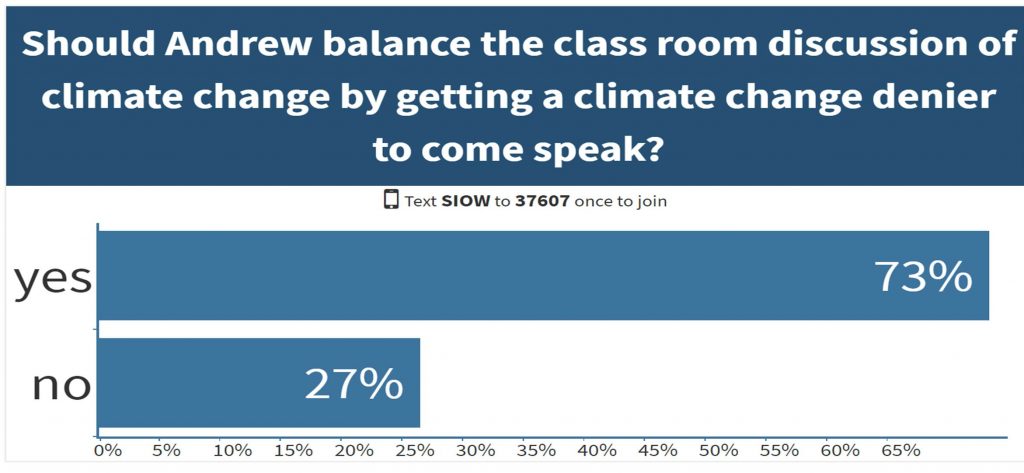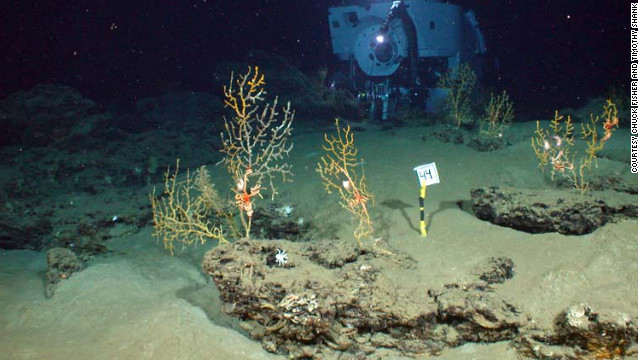Science is good at generating knowledge because it crowd-sources criticism. We humans are hopeless at finding fault in ourselves, but we are damn good at finding fault in others. Science exploits that. This is completely different from other realms of human endeavor (imagine politicians or lawyers or marketing people or religious leaders encouraging people to find flaws in their arguments).
But
over the years I have struggled to get this across to students. Last year, I hit on what I hoped would be
a powerful approach: follow in real time during the semester a paper of mine as it went through the peer review process.

It sure was powerful. I gave the students a grandstand view of the peer review process in action, and a close look at a few of the rigor hoops scientists have to jump though. But I accidentally provided a perhaps more important experience: a grandstand view of my anger, tears, fury, incredulity, humility, disagreements, disputes….in other words, an experience of science and the human condition. They seemed to revel in it. I will never forget the sound of the class groaning as I told them of the latest failure. Particularly because their groans got more emotional with each successive failure.
This was how it played out that semester.
Early August 2012, submitted to Science. Rejected without review.
Mid August, submitted to Nature. Rejected without review.
Early September, pre-submission inquiry to PLoS Medicine. Full submission encouraged.
Mid September, submitted to PLoS Medicine. Rejected without review.
Late September, pre-submission inquiry to PLoS Biology. Full submission encouraged.
End September, submitted to PLoS Biology. Rejected December 4: four negative reviews.
Well…, at least I was able to show the students some reviewer comments before semester end. When they last heard from me, the paper was in limbo. I told them I would email them in the Spring semester with the outcome. I should have been so lucky.
Late January, 2013, submitted to PNAS. Rejected without review early March.
Early March, pre-submission inquiry to PLoS Pathogens. Full submission encouraged.
Mid March, submitted to PLoS Pathogens. Rejected May 23. Four largely positive reviews.
June 7, re-submitted to PLoS Pathogens. Rejected end June. Three largely positive reviews.
 July 4, resubmitted to PLoS Pathogens. Accepted July 10.
July 4, resubmitted to PLoS Pathogens. Accepted July 10.
Yesterday, September 12, 2013, it got
published.
And what happened to the paper in those intervening 13 months? Well, it mostly just got shorter. We dumped almost all the mathematics, which we will publish elsewhere, and we took out an experiment, which we will publish elsewhere. Otherwise, we changed the rhetoric a bit (adding a paragraph repeating what we had
said before).
And now we wait to see whether anyone in the scientific community thinks the paper is as good as we do. Today, I emailed the SC200 class of 2012 to tell them how it all ended. And I think I will tell the class of 2013 this tale. I don’t have the heart to do another paper in real time.
 In my final class, I drew the students’ attention to this really excellent example of how to rationally think about evidence and reach a conclusion. I hope all SC200 graduates are now capable of assembling relevant data and thinking about it the way this author does.
In my final class, I drew the students’ attention to this really excellent example of how to rationally think about evidence and reach a conclusion. I hope all SC200 graduates are now capable of assembling relevant data and thinking about it the way this author does.







